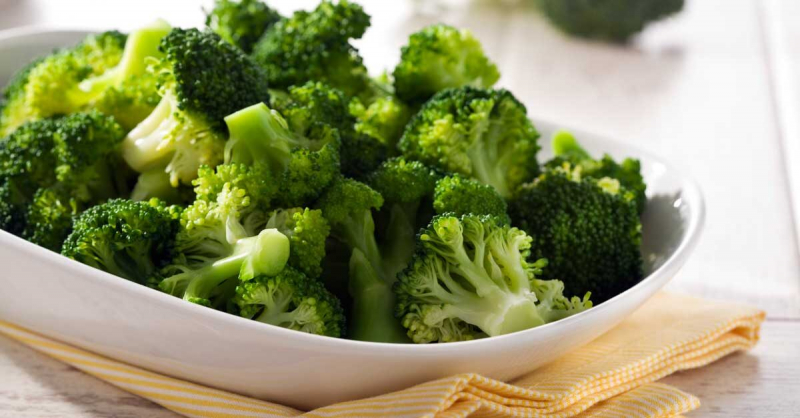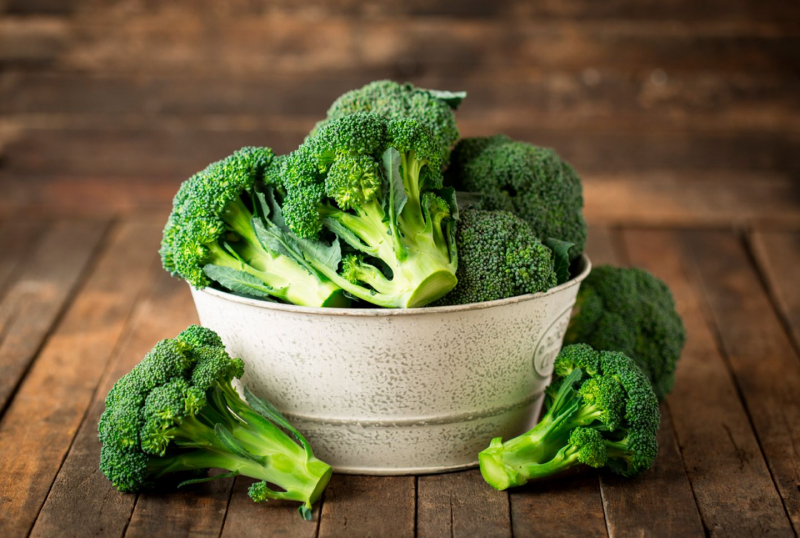Broccoli

The high nutritious content of broccoli is one of its most attractive features. It's packed with vitamins, minerals, fiber, and other bioactive substances. Broccoli may be eaten raw or cooked, and both are healthy options with varied nutritional profiles.
Broccoli is another good source of vitamin A, with a half-cup containing 60 micrograms, or 7% of a person's daily requirement. Broccoli is low in calories and high in vitamin C and K. Vitamin K is necessary for bone metabolism and blood clotting, whereas vitamin C boosts immunity and has anti-inflammatory and antioxidant qualities. Broccoli, whether raw or cooked, is a good source of vitamin C. Half a cup (78 grams) of cooked broccoli has 84% of the daily recommended intake (RDI), which is more than one-half orange. Due to the presence of a substance called sulforaphane, eating cruciferous vegetables like broccoli may reduce a person's risk of developing certain cancers. Broccoli may be roasted, steamed, or fried, and it can also be added to soups or salads.











